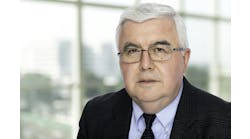By Mike Tugman and Erin Slayton, Contributing Authors
Amid increased federal funding and ambitious community programs, many local and state transportation agencies in the U.S. grapple with staffing challenges due to competition, retirements and emerging technologies.
Staff augmentation, where consultants supplement agency staff, has gained popularity as a solution. The advantages are an increased workforce, access to specialized expertise and better workload management. But the strategy also provides added benefits that agencies may not have initially considered.
Staffing Flexibility
In complex infrastructure projects, unforeseen situations are inevitable. Staff augmentation offers valuable flexibility and allows agencies to quickly scale their programs in response to changes in funding or project requirements.
Consultants act as an extension of staff and enable quick adjustments to the team’s size. If funding falls through, consultant staff can be reduced without impacting agency employees.
Or if a large grant is secured, staff can be increased quickly to keep it moving forward. This adaptability is crucial in meeting aggressive project schedules, ultimately contributing to increased staff satisfaction and retention.
Consultants can also provide coverage during short-term absences, allowing agency staff to maintain a healthier work-life balance and reduce burnout.
In Florida, which has used this approach extensively, embedded project managers from HDR have stepped in to assist after staff from the Florida Department of Transportation left, ensuring project continuity, balancing workload and minimizing impacts to schedules until new employees were hired.
Information Exchange
Transportation agencies face challenges in hiring and retaining qualified staff. Staff augmentation fosters collaboration between consultants and agency staff, nurturing the development of essential skills and experience.
This collaboration is particularly beneficial in areas of emerging technology or newer project delivery methods.
Augmenting staff with specialized national expertise brings valuable insights and best practices from around the country. We’ve seen this in action on projects across the country, from South Carolina to Arizona, and it can be transformative.
Putting the team first is essential, and consultants will share their considerable experience with agency staff.
This knowledge-sharing dynamic is akin to interactions at industry conferences, and the communication provides an avenue for in-house employees to learn best practices and approaches used elsewhere.
As agency leaders consider their options for staff augmentation, one factor may be where there are knowledge gaps in their organization and how a co-located team can help their staff expand their skillsets.
Collaboration and Efficiency
Major infrastructure projects can involve many disciplines, complex scheduling, and multiple stakeholders. A trusted consultant can simplify these complexities for agencies.
In Virginia’s Hampton Roads District, for instance, the Virginia Department of Transportation (VDOT) has benefited from a streamlined approach. HDR consultants attend meetings, assist in programming and scheduling, and oversee other consultants on $100 million-plus projects, all on VDOT’s behalf. The result is improved collaboration and more effective project execution.
This trust-driven collaboration saves time and money by minimizing misunderstandings and miscommunications.
Success in staff augmentation is built on a track record of dedication and value delivery. Trust is earned over time, and a seamless extension of agency staff is achieved by prioritizing common goals over transactional relationships.
This approach has proven successful in major programs across different states, emphasizing the importance of leaving logos at the door and focusing on collaborative success.
The successful delivery of transportation programs will continue to be measured by meeting budget and schedule expectations. A robust staff augmentation strategy can certainly help.
As transportation agencies navigate the evolving needs of their communities, these added advantages can become another significant tool for building stronger and more flexible organizations. RB
Erin Slayton, HDR’s transportation program management director, has helped lead multi-billion-dollar programs across North America. Mike Tugman is a principal program manager for HDR and has spent more than three decades designing and managing transportation projects throughout Virginia.



